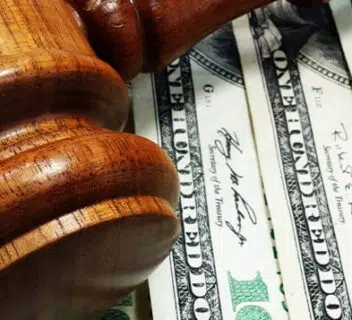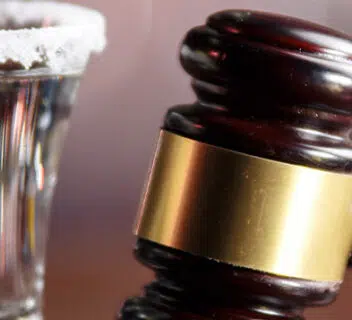If you’ve been injured in a car accident, then you could be entitled to compensation under the law. But if you’ve never litigated a case before, then chances are that you’re feeling at least somewhat confused, and maybe even a bit overwhelmed.
Car accident settlements can vary significantly based on the severity of injuries and the circumstances of the accident. You may be asking yourself questions that you’re simply not sure about the answer to: for example, how much can someone sue for a car accident? Or, for example, if it is important to file a claim with an auto insurance company? All of this can significantly impact the compensation process. After all, if you knew how much you’d potentially be entitled to, perhaps it would make it easier to decide on moving forward with the dispute.
Fortunately, you can contact 1-800-THE-LAW2 for a free consultation with an experienced car accident attorney in our network. They’ll be able to evaluate your case free of charge and give you guidance on how to proceed.
Of course, if you’d like to learn more about car accident litigation issues (such as “How much can someone sue for a car accident?”) then keep reading! We’ll cover some of the basics for you.
Understanding Car Accident Lawsuits
What is a car accident lawsuit?
A car accident lawsuit is a legal action taken by a victim of a car accident to seek compensation for their injuries, damages, and losses. Typically, the lawsuit is filed against the at-fault driver, their insurance company, or other parties responsible for the accident. This legal process aims to hold the responsible parties accountable and ensure that the victim receives the compensation they deserve for their suffering and financial losses.
Goals of a car accident lawsuit
The primary goal of a car accident lawsuit is to hold the responsible parties accountable for their actions and to provide fair compensation to the victim for their losses. This includes recovering damages for medical bills, lost wages, property damage, pain and suffering, and other related expenses. By pursuing a car accident lawsuit, victims can seek justice and financial relief to help them recover from the incident and move forward with their lives.
Who can be sued in a car accident case?
In a car accident case, several parties can be held liable and sued for damages. These include:
- The at-fault driver: The person whose negligence or recklessness caused the accident.
- The at-fault driver’s insurance company: The insurer responsible for covering the damages caused by their policyholder.
- The vehicle’s manufacturer: If the accident was caused by a defective vehicle part, the manufacturer could be held liable.
- The government agency responsible for maintaining the road: If a road hazard or poor maintenance contributed to the accident, the relevant government agency might be sued.
- Other parties who may have contributed to the accident: This could include pedestrians, other drivers, or any other individuals whose actions played a role in causing the accident.
Liability Insurance: How Much Can You Sue For
In the event of a car accident, liability insurance plays a crucial role in determining how much you can sue for. Liability insurance is designed to cover damages to other parties involved in the accident, including medical expenses, lost wages, and property damage. The amount of liability insurance coverage varies by state and individual policy, but it typically ranges from $25,000 to $100,000 or more per person and $50,000 to $300,000 or more per accident.
When determining how much you can sue for, the liability insurance coverage limits of the at-fault driver’s policy will be taken into account. If the at-fault driver has a policy with a limit of $50,000 per person and $100,000 per accident, you can sue for up to those amounts. However, if your damages exceed the policy limits, you may need to explore other options, such as suing the at-fault driver personally or seeking compensation from your own uninsured motorist coverage.
Uninsured Motorist Coverage
Uninsured motorist coverage is an essential component of your auto insurance policy, as it provides protection in the event that the at-fault driver is uninsured or underinsured. This coverage can help pay for medical expenses, lost wages, and other damages if the at-fault driver is unable to compensate you.
In most states, uninsured motorist coverage is mandatory, and the minimum coverage limits vary. For example, in some states, the minimum coverage limits are $25,000 per person and $50,000 per accident. However, it is recommended to purchase higher coverage limits to ensure adequate protection in the event of an accident.
If you are involved in a car accident with an uninsured or underinsured driver, your uninsured motorist coverage can help fill the gap in coverage. However, the amount of compensation you can receive will depend on the coverage limits of your policy.
How do I know whether I have an actionable car accident claim?
Whether you have an actionable legal claim depends on the satisfaction of various “liability elements.” These elements are as follows:
- The defendant violated their duty of care towards you;
- In doing so, the defendant caused you to suffer injury; and
- Your injuries led to claimable losses.
The amount of compensation a car accident victim can sue for typically includes medical expenses, lost wages, and pain and suffering. Cases involving serious bodily injury or fatalities can result in substantially higher compensation amounts.
Seems straightforward, right? In reality, each of these basic elements can be unpacked into many layers of complex argument — and it is in these nuances that disputes are often won or lost.
How much can someone sue for a car accident? What sort of compensation is the injury victim entitled to?
The amount of compensation a car accident victim can sue for varies depending on the severity of their injuries, the extent of their damages, and the applicable laws in their state. Generally, a car accident victim may be entitled to compensation for:
- Medical bills and expenses
- Lost wages and income
- Property damage (including damage to their vehicle)
- Pain and suffering
- Emotional distress
- Loss of enjoyment of life
- Punitive damages (in cases where the at-fault driver’s actions were reckless or intentional)
It’s essential to note that the amount of compensation a car accident victim can receive is often limited by the at-fault driver’s liability insurance coverage. If the at-fault driver is uninsured or underinsured, the victim may need to rely on their own uninsured motorist coverage or seek compensation from other sources.
Damages are different from case-to-case, because every plaintiff — and every accident — is unique. As such, the losses sustained will be unique, too. Gathering evidence and medical documentation immediately following the accident is crucial to support a car accident settlement. For example, if you’re a hobbyist mountain climber and you’re unable to climb after your car collision accident, then you would have a damages claim based on the “loss of enjoyment of life.” By contrast, someone who is a shut-in and doesn’t engage in physical activity may not have as substantial a damages claim for “loss of enjoyment of life.”
To maximize their chances of receiving fair compensation, car accident victims should consult with an experienced personal injury attorney who can help them navigate the complex process of filing a car accident lawsuit. An attorney can provide valuable guidance, negotiate with insurance companies, and ensure that the victim’s rights are protected throughout the legal process.
Types of Damages in a Car Accident
In a car accident case, there are three primary types of damages: economic damages, noneconomic damages, and punitive damages.
Economic Damages
Economic damages refer to the financial losses you incur as a result of the car accident. These damages can include:
- Medical bills and expenses
- Lost wages and income
- Property damage, including damage to your vehicle
- Other related expenses, such as rental car fees and towing costs
Economic damages are typically easy to quantify, as they are based on actual expenses and losses. However, it is essential to keep accurate records of your expenses and losses to ensure you receive fair compensation.
Noneconomic Damages
Noneconomic damages refer to the non-financial losses you incur as a result of the car accident. These damages can include:
- Pain and suffering
- Emotional distress and anxiety
- Loss of enjoyment of life
- Loss of consortium (companionship)
Noneconomic damages are more challenging to quantify, as they are subjective and based on individual experiences. However, an experienced car accident attorney can help you demonstrate the extent of your noneconomic damages and negotiate fair compensation.
Punitive Damages
Punitive damages are designed to punish the at-fault driver for their reckless or negligent behavior. These damages are typically awarded in cases where the at-fault driver’s actions were intentional or grossly negligent.
Punitive damages can be substantial, but they are not always awarded. An experienced car accident attorney can help you determine if punitive damages are applicable in your case and negotiate fair compensation.
In summary, the amount you can sue for in a car accident case depends on various factors, including liability insurance coverage, uninsured motorist coverage, and the types of damages you incur. It is essential to consult with an experienced car accident attorney to ensure you receive fair compensation for your losses.
How is my right to recover compensation affected if I’m partially at-fault for the car accident and have liability insurance?
If you were partially at-fault for the car crash, then your ability to recover compensation can be affected. This can complicate your car accident claim, making it crucial to seek legal guidance to navigate the complexities and maximize your recovery. How significantly your right to compensation will be affected depends on the state law that governs your dispute.
In some states, the doctrine of pure comparative fault applies. Under pure comparative fault, you are entitled to sue and recover compensation even if you are 99 percent at-fault. That being said, your compensation will be reduced by your fault contribution — so if you are suing for $50,000, and you’re 50 percent at-fault, you’d be entitled to recover up to $25,000.
In other states, the doctrine of modified comparative fault applies. Under modified comparative fault, you are entitled to sue and recover compensation, but only if you are less than 51 percent at-fault. Again, your compensation will be reduced by your fault contribution (represented as a percentage).
In a few states, the doctrine of strict contributory fault applies. Under strict contributory fault, you are not entitled to sue and recover compensation if you are partially at-fault — you can even be just one percent at-fault, and the law will prevent you from being compensated. That being said, there may be ways to circumvent this restriction, if you can argue that your “fault contribution” was not actually linked to your injuries.
Can I still be compensated for medical expenses if my health insurance policy covers most of the cost?
Yes, you can be compensated for all your medical expenses, even if you didn’t actually pay out-of-pocket for those medical expenses. Having sufficient auto insurance coverage is crucial to ensure that all your medical expenses are covered. This actually results in a financial windfall in many car accident disputes.
So why do the courts continue to allow it?
In essence, there is good public policy reasoning behind this decision. American policy is such that the courts do not want to punish people for having the foresight to purchase adequate health insurance coverage. If you were not allowed to sue and recover medical expenses (even when your costs are covered by the insurance company), then you would be punished for spending the money on your insurance policy.
As a result of this decision, you get to “keep” the excess money as a financial windfall. So it’s a fantastic situation for those who have health insurance coverage.
I already had a preexisting injury at the time of my car accident — but it got worse. Can I sue for compensation?
If you have a preexisting injury or condition, then yes, you can potentially sue for compensation, even if you didn’t suffer an entirely different sort of injury — that’s because the worsening of your preexisting injury still counts as a “new” injury that was caused by the defendant’s actions. Car accident cases involving preexisting injuries can be particularly complex and require experienced legal representation.
This issue can often be a lightning rod of conflict in a personal injury lawsuit, as the defendant will try to argue that your injury was indistinct and “not” worsened by the accident. And even if you’re able to establish that the injury was distinct, the defendant will try to restrict your damages by ensuring that you only can claim losses that are unique to the “worsened” condition.
Given how challenging and nuanced this type of issue can be to litigate, it’s absolutely critical that you work with experienced personal injury attorneys who have the training necessary to understand the ins-and-outs of your dispute and counter these defense arguments.
How much time do I have to sue for a car accident?
Every personal injury claim has a statute of limitations that applies to it — in other words, a deadline by which you must file the claims. If you do not file your claims before the relevant deadline, then courts can dismiss your claims on the basis that you abandoned or relinquished them under the law. This can prevent you from securing any sort of legal recovery in the form of compensation.
Given the risks associated with a delay, it’s critical that you work with an experienced car accident attorney as soon as possible after your accident. One of their legal duties is to handle your claims in a timely manner — as such, you can rest easy knowing that they will move forward with your claims in a way that satisfies all the procedural requirements.
Statute of limitations deadlines vary from state-to-state, and vary based on the type of claim involved. In California, for example, the statute of limitations deadline for a negligence-based injury claim is two years from the date of injury (though there is a six-month procedural deadline if you’re suing a government defendant). In New York, by contrast, the same deadline is three years from the date of injury. Consult your personal injury lawyer for guidance on these and other procedural requirements.
Contact 1-800-THE-LAW2 for a Free Legal Consultation
If you’ve been injured in a car accident, then you could be entitled to sue for compensation under the law. Navigating the legal process isn’t always straightforward, however, and the path to recovery isn’t always clear. That’s why it’s so important to work with an experienced car accident lawyer who can help you understand your strategic options and who will fight relentlessly for your right to compensation.
Contact 1-800-THE-LAW2 for a free consultation with a qualified local car accident attorney in our network. During this initial consultation, you’ll have the opportunity to discuss the details of your case and to learn more about what next steps you should take to maximize your recovery. If you decide against moving forward with the dispute, that’s okay — there’s no obligation to continue. So pick up the phone and call in today to get started with a free case evaluation.
We look forward to assisting you.



